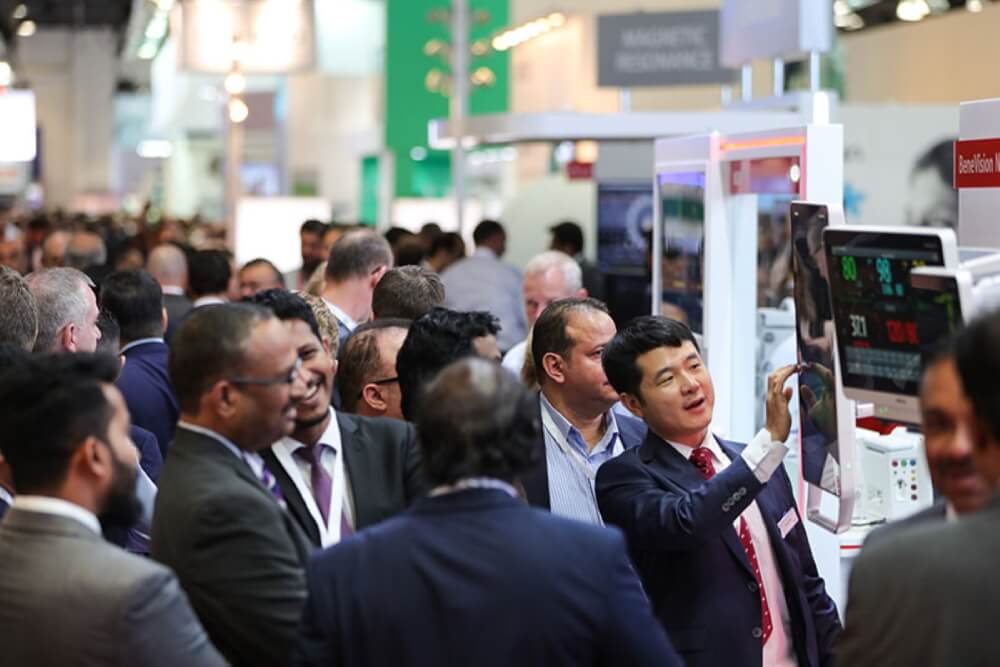Arab Health to address the exacerbation of asthma in the MENA region as currently only 30% of people are treated in a controlled environment
- Poor medication adherence, lifestyle, and air quality are all contributing to the increase of asthma sufferers in the MENA region and the subsequent economic burden on society
- Globally, over 339 million people have asthma – one in 20 of the world’s population; in the UAE, 1.3 million asthma sufferers have been recorded, one in eight of the population
- Regional and global experts to discuss the best course of action to remedy the exasperation of asthma in the region during the 4th Emergency Medicine Conference at Arab Health
Arab Health, the largest exhibition for healthcare and trade professionals in the MENA region is partnered with InnoHEALTH Magazine (India’s First Magazine of Healthcare Innovations) as a ‘Media Partner’. The exhibition will address the growing prevalence of asthma in the Middle East and North Africa (MENA) region as part of the 4th annual Emergency Medicine Conference, which takes place on the opening day of the trade show on 27 January 2020.
According to research from the Global Asthma Network, some 339 million people, or one in 20 globally, are affected by the condition. Often referred to as a Chronic Respiratory Disease (CRD), it causes airways to restrict and often results in coughing, wheezing, tightening of the chest, shortness of breath and generally difficulty breathing. In the UAE, approximately 14% of the population is impacted, equating to 1.3 million residents.
Speaking ahead of the Emergency Medicine conference, Dr. Saleh Fares, Consultant of Emergency Medicine, EMS and Disaster Medicine, Founder and President, Emirates Society of Emergency Medicine (ESEM), Dubai, and moderator of the respirology session, said: “CRDs are increasing in prevalence in the Middle East and, unfortunately, are often left undiagnosed and untreated. This is having huge social and economic consequences and, in some instances, is resulting in death. With the correct diagnosis and treatment, the number of deaths can be dramatically reduced, and the impact of the condition lessoned.”
“We need to ensure there is better access to treatment and educate both frontline medical staff, as well as the patient, about the symptoms and the best course of action to take to remedy the condition,” he added.
The UAE’s above-average number of asthma cases is often attributed to the UAE’s dusty conditions due to the desert environment as well as seasonal changes and the resulting increase and decrease in temperature and humidity. A reliance on air conditioning in the home and office, if not properly cleaned, can also become the ideal breeding ground for mould and dust which can act as a trigger for some sufferers.
According to Dr Danish Sami, Consultant, Emergency Medicine, Sheikh Shakhbout Medical City (SSMC), Abu Dhabi, who will outline the factors contributing to the region’s asthma problems as part of his session titled Asthma Exacerbation in 2020: “The issue we face is that only 30% of asthma sufferers are treated in a controlled environment. Similarly, only 30% are either partially controlled, and 40% have no diagnosis and therefore no treatment. There is still a need for education, particularly with children, who we need to encourage to exercise more to help negate the impact of asthma, however steps taken within the education system and health authorities are helping to address these issues.”
According to the latest research from UN Comtrade 2019, the UAE has seen a Compound Annual Growth Rate (CAGR) increase of 14.92% from US$19.6 million in 2015 to US$34.1 million in 2018 in the product categories of therapeutic respiration apparatus, ozone, oxygen and aerosol therapy apparatus; and artificial respiration or other therapeutic respiration apparatus.
The bulk of therapeutic respiration apparatus imports by the UAE come from the United States, China, Japan and Germany – all countries that will be present at Arab Health 2020 and showcasing their latest technology in this field.
Ross Williams, Exhibition Director of Arab Health, said: “As part of our commitment to provide access and information about the most up-to-date solutions and medical devices to the region, we will host over 250 companies who will be showcasing the latest technologies related to respiratory and life support. Products and services will include ventilation solutions, oxygen and nebuliser masks as well as ventilation units and ICU ventilation from companies including Drager, Hamilton and Polybond India.”
In addition to the Emergency Medicine Conference, a total of 13 Continuing Medical Education (CME) conferences and one educational forum will take place during the four-day Arab Health Congress. More than 5,000 delegates are expected to attend popular returning tracks including Obs & Gyne, Diabetes and Total Radiology, as well as eight new conferences that include; Midwifery, Patient Experience, Physical Medicine, Rehabilitation & Sports Medicine, and a Healthcare Investment Forum, amongst others.
Organised by Informa Markets, an anticipated 4,250+ exhibitors from more than 64 countries and 55,000 visitors are expected to attend the 2020 edition of the show which takes place from 27 – 30 January 2020 at the Dubai World Trade Centre and Conrad Dubai Hotel.
Register for free
Also Read:
InnoHEALTH 2019 conference report
InnoHEALTH 2018 conference report
InnoHEALTH 2017 conference report

